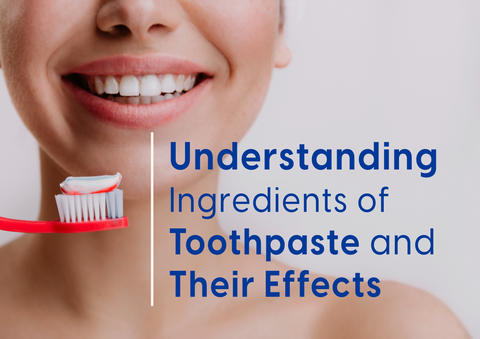Acne is a pervasive skin condition that affects millions of individuals worldwide and has been a source of frustration and self-consciousness for countless people of all ages. From the occasional pesky pimple to more severe breakouts, acne prone skin can significantly impact one's self-esteem and overall quality of life. Despite its prevalence, the root causes of acne have remained a subject of interest and scientific inquiry for decades.

What Foods are Good For Fighting Acne & Keeping Your Skin Clear?


- Fruits and vegetables. Variety of fruits and vegetables are rich in vitamins, minerals, and antioxidants that can help to give nutrition to your skin. Focus on colorful options such as berries, citrus fruits, leafy greens, carrots, and bell peppers.
- Nuts and seeds. Almonds, walnuts, flaxseeds, and chia seeds are examples of foods that contain omega-3 fatty acids as well as other beneficial nutrients like vitamin E and zinc, which promote skin health.
- Whole grains. Opt for whole grain options like brown rice and whole wheat bread instead of refined grains. Whole grains have a lower glycemic index, which means they have a more gradual impact on blood sugar levels and may help prevent acne breakouts associated with high-glycemic foods.

- Probiotics. Probiotics are beneficial bacteria that promote a healthy gut, which can have positive effects on the skin. Foods like yogurt, kefir, and kimchi contain natural probiotics.
- Green tea. Green tea is rich in antioxidants and has been shown to have anti-inflammatory properties. Regular consumption may help reduce acne symptoms.
- Water. Staying hydrated is essential for maintaining healthy skin. Drinking an adequate amount of water helps flush out toxins and keeps the skin hydrated from within.

Common Skincare Mistakes To Avoid When Dealing With Acne
- Over-cleansing and exfoliating. Over-cleansing or using harsh scrubbing techniques can strip the skin of its natural oils and disrupt its balance. Avoid using abrasive scrubs, harsh cleansers, or cleansing too frequently, as this can irritate the skin and worsen acne.
- Using too many products. If you think using acne products 'kit' from some brand is necessary, it actually is not. Benzoyl peroxide in acne products kit will simply irritate your skin, leaving it red and super sensitized. Although, do not use manh products, you need to choose not the worst products for acne-prone skin.

- Picking or popping pimples. It can be tempting to squeeze or pop pimples, but this can lead to further inflammation, scarring, and even spread bacteria to other areas of the skin. Or you can use a patch for covering it.
- Skipping moisturizer. Moisturizing is essential to keep the skin hydrated and maintain its protective barrier. Choose non-comedogenic, oil-free moisturizers suitable for acne-prone skin to maintain proper hydration without clogging pores.
- Not seeking a dermatologist. If your acne does not improve with at-home treatments or is causing significant distress, it's important to consult a dermatologist who can provide personalized advice and prescribe appropriate medications or treatments.

Which Skincare Products are Best for Treating Acne?

- Cleansers. Look for gentle cleansers that effectively remove dirt, oil, and impurities without stripping the skin. Ingredients like salicylic acid or benzoyl peroxide can be beneficial for acne-prone skin.

- Moisturizers. Moisturizers to keep the skin hydrated without clogging pores. Look for ingredients like hyaluronic acid or ceramides to maintain moisture balance. Some moisturizers also contain acne-fighting ingredients.

- Exfoliants. Chemical exfoliants, such as alpha hydroxy acids (AHAs) or beta hydroxy acids (BHAs), can help remove dead skin cells, unclog pores, and improve skin texture. AHAs like glycolic acid or lactic acid are effective for surface exfoliation, while salicylic acid is a common BHA that penetrates pores to treat acne.

- Sunscreen. Protecting the skin from the sun is important when using acne treatments, as some ingredients can increase sun sensitivity. Choose a broad-spectrum sunscreen with at least SPF 30, preferably oil-free and non-comedogenic.



Comments (0)
There are no comments for this article. Be the first one to leave a message!